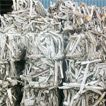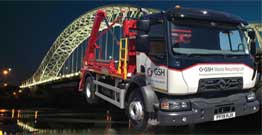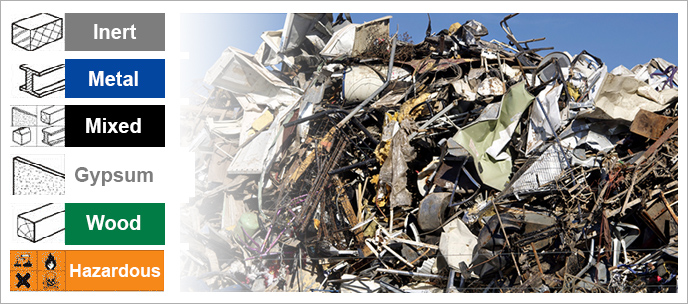Waste Segregation
Why segregate waste?
Segregating waste on site into separate material streams can help minimise costs and maximise the opportunities for recovery and recycling.
Waste Sign
Waste Types
- Clean concrete, rubble, hardcore, brick & block etc that will not decompose or cause a hazard when buried.
- Use only uncontaminated metals. Examples include rebar off cuts; scrap metal (no empty paint tins, as these are considered hazardous).
- Any wastes except contaminated materials that cannot be recycled in other bins on the site.
- Plasterboard and Gypsum products must be disposed of separately from other waste streams, when mixed with other biodegradable waste it can produce harmful toxic gases. Plasterboard and gypsum waste is an item we do recycle at GSH however must be separated at site before it is transported back to our recycling centre. For more information regarding plasterboard skip hire please contact us for help and advice.
- Only timber or wood products. Do not use for treated timbers as these may be contaminated with preservatives.
- Only for contaminated or hazardous wastes. Examples include old paint cans, mastic tubes, and COSHH materials.
What constitutes 'Mixed Waste'?
In construction terminology, mixed waste is all the waste created on the site which is not hazardous. As mentioned in the European Waste Catalogue 2002, hazardous and mixed waste types must never be confused.
What happens to 'Mixed Waste'?
'Mixed Waste' is taken to a transfer station where it is fed into a number of picking stations and trammels. These separate the various types of products such as paper, cardboard, plastic, metals and wood for recycling.
Why are there different costs for different waste streams?
The cost of dealing with different streams depends on the how easy the waste is to extract, process into a usable product and what its end value is.
What is cross contamination?
Cross contamination is when waste streams that have been segregated at source are contaminated with other streams.
Why is it important not to cross contaminate waste streams?
Mixed wastes are the most expensive to recycle / dispose of. Taking the longest to segregate, they have the poorest quality recyclate fractions and have the highest fraction of landfill. This in turn leads to higher producer costs and poorer Environmental reporting figures.
Why is landfill so expensive?
The space available for landfill is quickly running out and landfill sites produce large amounts of green house gasses. Therefore to increase recycling rates and make recycling more economically viable the government introduced Landfill Tax; this increases each year via an escalator. Landfill tax will increase year on year, therefore it is imperative that where possible, waste is segregated at source and is not cross contaminated.
Recycled Baled Cardboard
Fully compliant and sustainable baled cardboard recycling solutions for business.
find out more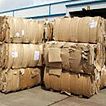
Recycled Baled Clear Film
We produce clear film and jazz bales for use in new manufacturing processes and export across the world.
find out more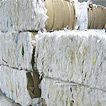
Recycled Baled HD/PP
We recover, segregate and recycle a variety of plastic material, including HD & PP in bales.
find out more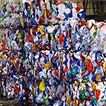
Recycled Baled UPVC
Efficient, cost effective recycling of valuable waste material including baled UPVC & low grade plastics.
find out more